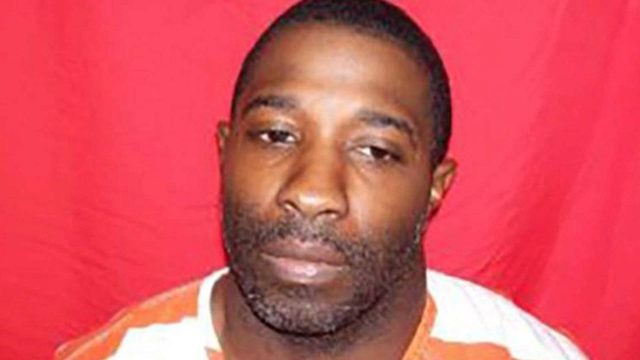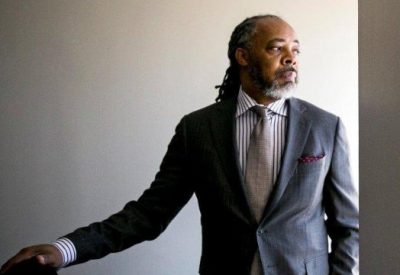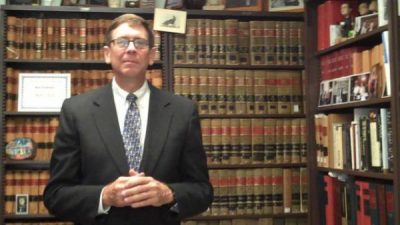
Robert McCoy, Louisiana death-row prisoner
“One of 10 death sentences in Louisiana since 2000 that have been tainted with the same flaw”
“Decision to maintain one’s innocence falls within the category of decisions reserved for the defendant” — USSC
 VOD: Some have estimated conservatively that at least 20 percent of Michigan’s 343 juvenile lifers are innocent. Many were represented by court-appointed attorneys, some of whom argued they were guilty, because their families could not afford paid counsel. They were falsely convicted after corrupt police and forensic testimony.
VOD: Some have estimated conservatively that at least 20 percent of Michigan’s 343 juvenile lifers are innocent. Many were represented by court-appointed attorneys, some of whom argued they were guilty, because their families could not afford paid counsel. They were falsely convicted after corrupt police and forensic testimony.
County prosecutors have recommended renewed life without parole sentences for at least 247 of them, although the U.S. Supreme Court ruled in 2012 and 2016 that mandatory juvenile life without parole is retroactively unconstitutional, and that “only the rarest child” should die in prison.
Unfortunately, many current court-appointed attorneys, have refused to argue innocence claims, saying that the re-sentencings do not allow for such arguments. The McCoy v. Louisiana case strongly makes the point that a lawyer is OBLIGATED to argue innocence if that is what the client wishes.

USSC Justices who voted to overturn McCoy conviction are shown in color. Justice Ruth Bader Ginsbury wrote the majority opinion.
Amy Howe Independent Contractor and Reporter
Opinion analysis:
Posted Mon, May 14th, 2018 11:42 am
[NOTE: This post was updated with additional analysis at 4:18 p.m.]
This morning the Supreme Court overturned a Louisiana inmate’s death sentence because the inmate’s lawyer – hoping to save his client’s life – had told the jury that the inmate was guilty, even though the inmate had expressly objected to that strategy. The 6-3 ruling reiterated that the Constitution gives a criminal defendant the fundamental right to make decisions about his defense and therefore bars a defense lawyer from going against his client’s instructions, even when the lawyer’s defense strategy might seem perfectly reasonable.

Attorney Larry English
The decision came in the case of Robert McCoy, who in 2011 was on trial for the shooting deaths of his estranged wife’s son, mother and stepfather. McCoy clashed with his public defenders, so his parents hired a private attorney, Larry English, to represent him. McCoy insisted that he was innocent and was being framed in retaliation for revealing that local police were involved in a drug ring, but English believed that the evidence against his client was “overwhelming.”
So English first encouraged McCoy to plead guilty in exchange for a life sentence; as McCoy’s trial approached, English told McCoy that he planned to tell the jury that McCoy had committed all three murders, in the hope that doing so would convince the jury to sentence McCoy to life in prison, rather than death. McCoy was furious, but English went ahead with his plan, telling the jury that McCoy was “crazy” and “lives in a fantasy world.”
English’s strategy failed: The jury found McCoy guilty of first-degree murder and sentenced him to death. State courts in Louisiana upheld McCoy’s conviction and death sentence, rejecting his argument that English’s decision to admit McCoy’s guilt, despite McCoy’s objections, violated the Constitution. Today the Supreme Court, in a relatively brief (13-page) decision by Justice Ruth Bader Ginsburg, ordered the Louisiana courts to give McCoy a new trial. (See full ruling at http://voiceofdetroit.net/wp-content/uploads/McCoy-v-Louisiana.pdf .)

Justice Ruth Bader Ginsbury wrote the McCoy opinion.
The majority acknowledged that English found himself “in a difficult position: he had an unruly client and faced a strong government case.” And it was reasonable for him to believe that he should try to avoid a death sentence for McCoy. But, the majority explained, even when a defendant is represented by an attorney, he does not give up all control over his case to the attorney.
A criminal defendant’s lawyer may be responsible for what the court described as “trial management” – for example, what evidence to object to and what arguments to pursue – but the defendant himself has the sole right to make some decisions, such as whether to plead guilty or to waive the right to a jury trial. The decision to maintain one’s innocence, the court reasoned, falls within the category of decisions reserved for the defendant: If the defendant tells his attorney that “the objective of ‘his defence’ is to maintain innocence of the charged criminal acts,” the court continued, the attorney must follow that instruction and cannot “override it by conceding guilt.”
This means, the majority concluded, that once English knew that McCoy objected to his proposed strategy of admitting McCoy’s guilt to the jury, it was not English’s place to override McCoy’s objection.

Prof. Rory Little
The majority went on to rule that this violation of McCoy’s rights falls within the category of errors known as “structural” – violations that, as criminal law expert Rory Little has explained, “are so fundamental and difficult to quantify” that a defendant does not need to show that they changed the outcome of a trial. The justices explained that, in McCoy’s case, English’s insistence on conceding McCoy’s guilt even after McCoy had objected blocked McCoy’s “right to make the fundamental choices about his own defense.”
Moreover, they added, “the effects of the admission would be immeasurable, because a jury would almost certainly be swayed by a lawyer’s concession of his client’s guilt.” Therefore, the majority concluded, McCoy is entitled to a new trial, without having to show that he was harmed by English’s strategy.
One of McCoy’s attorneys hailed today’s decision, declaring that, although “rare in the rest of the country, what happened to Mr. McCoy was a part of Louisiana’s broken criminal justice system that fails to respect individual human dignity. Mr. McCoy’s was one of ten death sentences imposed in Louisiana since 2000 that have been tainted with the same flaw.”

Louisiana protest vs. state injustice system; Louisiana and Michigan have been called the two worst states in the U.S. regarding their treatment of juvenile lifers.
Justice Samuel Alito dissented, in an 11-page opinion that was joined by Justices Clarence Thomas and Neil Gorsuch; he would have left the Louisiana Supreme Court’s ruling in favor of the state (and, by extension, McCoy’s death sentence) in place. Alito maintained that the majority had gotten the issue at the heart of the cases wrong: English had not argued that McCoy was guilty of first-degree murder, but had instead told the jurors that although McCoy had killed the three victims, he was not guilty of first-degree murder because he hadn’t intended to kill them, as first-degree murder convictions require.
But in any event, Alito continued, the right described in the court’s opinion today “is like a rare plant that blooms every decade or so”: Among other things, it is only likely to surface in capital cases in which defendants are acting irrationally by contesting their guilt despite overwhelming evidence, and in which lawyers continue to represent those defendants even though they cannot agree with their clients on their strategy. “In short,” Alito concluded, “the right that the Court now discovers is likely to appear only rarely, and because the present case is so unique it is hard to see how it meets our stated criteria for granting review.”
This post was also published at Howe on the Court.
Related:
http://louisianajusticeinstitute.blogspot.com/2013/02/a-child-on-death-row-story-of-shareef.html
https://newsone.com/3799904/supreme-court-ruling-death-row-robert-mccoy/




